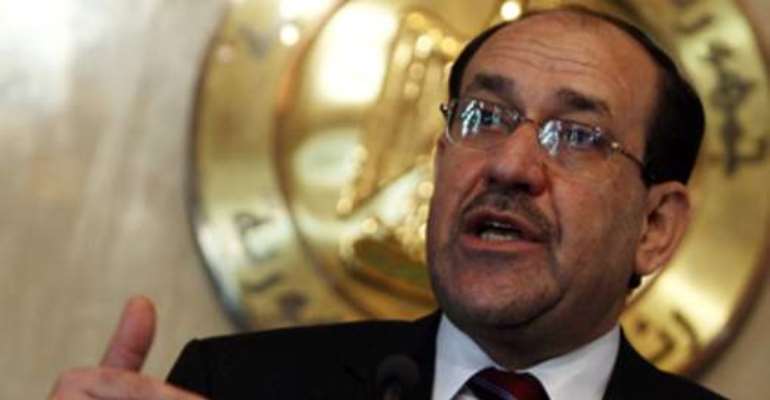U.S. applies sanctions to Uganda over anti-gay law

The United States on Thursday cancelled a regional military exercise in Uganda, imposed visa restrictions, diverted funds for a health institute to another country and cut funding for a Ugandan police program in response to a law that imposes harsh penalties for homosexuality, Reuters reports.
Senior U.S. administration officials, speaking before the announcement by the White House, said the stepped-up measures were carefully targeted at those responsible for abuses related to implementation of the anti-gay law and involved in corruption.
The officials said the steps would not directly impact HIV/AIDS and food programs that benefit ordinary Ugandans.
“The idea is to send a signal to perpetrators and would-be perpetrators that we are indeed monitoring, that we are indeed prepared to take measures, and that there are consequences,” a senior administration official told Reuters.
The call for Nouri al Maliki to quit as a condition of US help is growing
Sunni tribal chief Sheik Ali Hatem al Suleiman, the emir of the Sunni Dulaim tribe from Anbar province, said Mr Obama could no longer rely on Mr al Maliki to solve the rising insurgency.
He said: “I think that most of President Obama's speech, but not all of it, was shallow and didn't address the heart of the matter.
“It talked about participation, it talked about a national government, but you can't come to Iraq with a speech that doesn't address the truth of the problem.
“And the real problem in Iraq is al Maliki himself.? I don't think Obama's speech addressed the reality of today's Iraq.
“You can't rely on him. The man has become paralysed.”
Mr al Suleiman also criticised Mr Obama's decision to send 300 military advisers to Iraq.
“Three hundred advisors just when you withdraw these 300 advisors, Iraq will lose its balance for one reason?”
Mr Obama announced his most significant response to the Iraqi crisis, the sprawling Baiji refinery, 130 miles (200km) north of the capital near Tikrit, was transformed into a battlefield.
Troops loyal to the Shia-led government held off the ISIS insurgents and their allies who had stormed the perimeter a day earlier, threatening national energy supplies.
A government spokesman said at one point on Thursday that Iraqi forces were in “complete control”, but a witness in Baiji said fighting was continuing.
Two Iraqi helicopters tried to land in the refinery but were unable to because of insurgent gunfire, and most of the refinery remained under rebel control, witnesses said.
ISIS has seized a chemical weapons facility built by Saddam Hussein, which contains a stockpile of old weapons, according to the Wall Street Journal.
But US officials are reportedly confident that any weapons stored at the Al Muthanna complex – which has not been in active use for years – are not usable.
